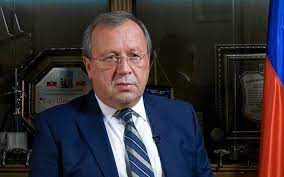
Israel has voiced its strong objections to Russia’s decision to host a delegation from Hamas, the Palestinian group responsible for a deadly attack on Israel on October 7 that triggered a war in Gaza, killing over 1,400 people. The Israeli Foreign Ministry summoned the Russian ambassador to express their concerns, emphasizing that inviting Hamas sends a message that legitimizes terrorism against Israelis.
Russia, on the other hand, has defended its decision to host the Hamas delegation as part of its broader strategy to maintain contact with all sides involved in the Israel-Palestinian conflict. This move has sparked a diplomatic row between the two nations, raising questions about how to balance diplomatic engagement with the need to address terrorism.
The Hamas attack on October 7, which killed over 1,400 people, led to a military escalation in the Gaza Strip and a broader conflict that further complicated efforts to achieve a lasting peace in the region. Hamas is recognized as a terrorist organization by Israel, the United States, and the European Union, due to its history of violence and its stated goal of eliminating the state of Israel.
In response to Russia’s decision to host the Hamas delegation, Israel’s Foreign Ministry released a statement, saying, “Inviting Hamas sends a message legitimizing terrorism against Israelis.” The statement clarified that the summons to the Russian ambassador was a protest and not a reprimand.
Russia has argued that its engagement with Hamas is part of a broader diplomatic effort aimed at facilitating dialogue and negotiations to resolve the long-standing Israeli-Palestinian conflict. Moscow has maintained a stance of engaging with various factions on both sides, believing that diplomatic engagement can help build bridges and eventually lead to a peaceful resolution.
This development adds to the complex and sensitive nature of the Israel-Palestine conflict, highlighting the challenges that arise when diplomatic engagement collides with the recognition of certain groups as terrorist organizations. It remains to be seen how this disagreement will impact diplomatic relations between Israel and Russia and whether it will influence future mediation efforts in the Middle East.
Sources By Agencies


